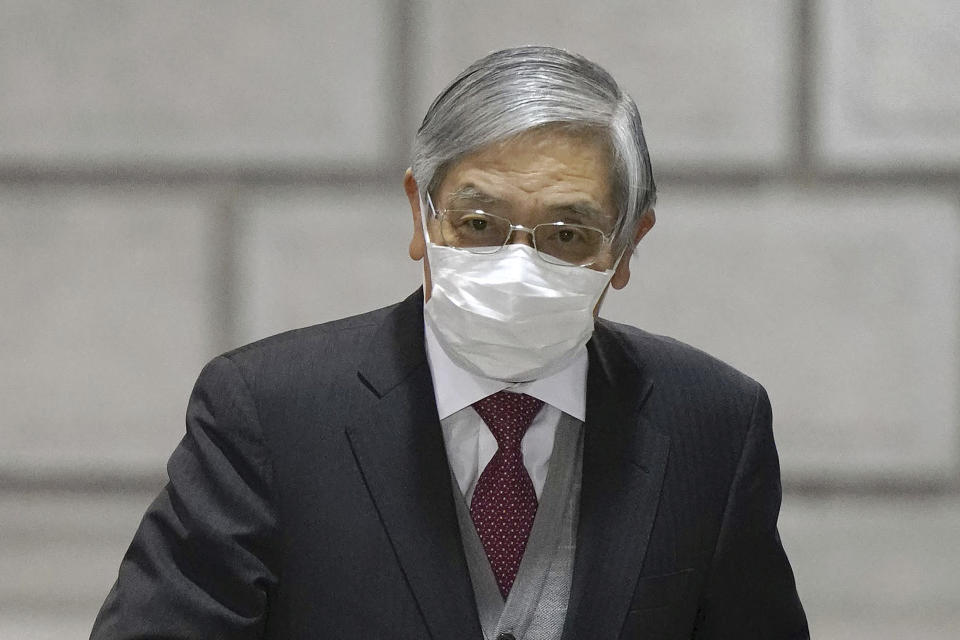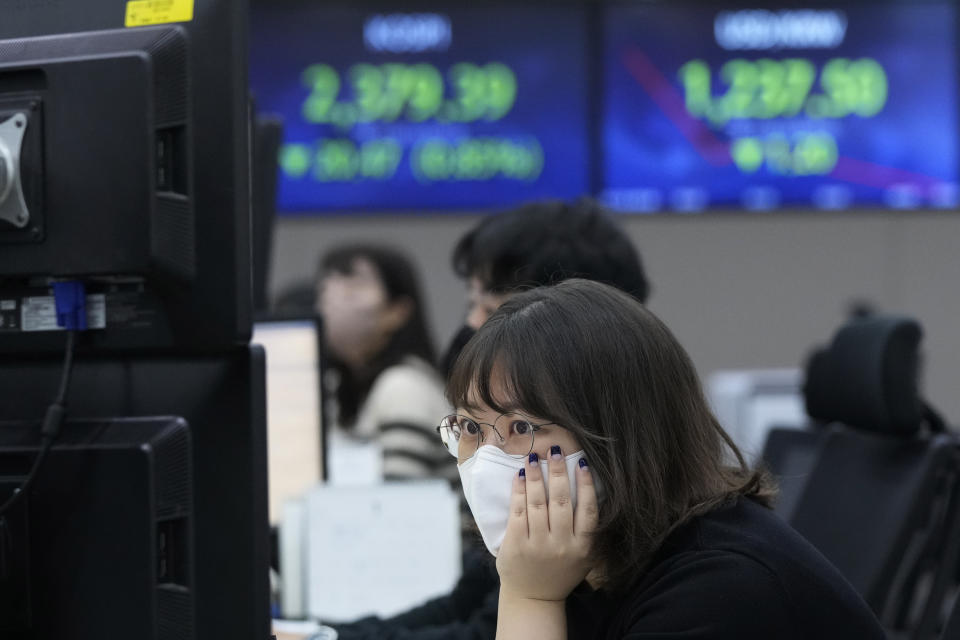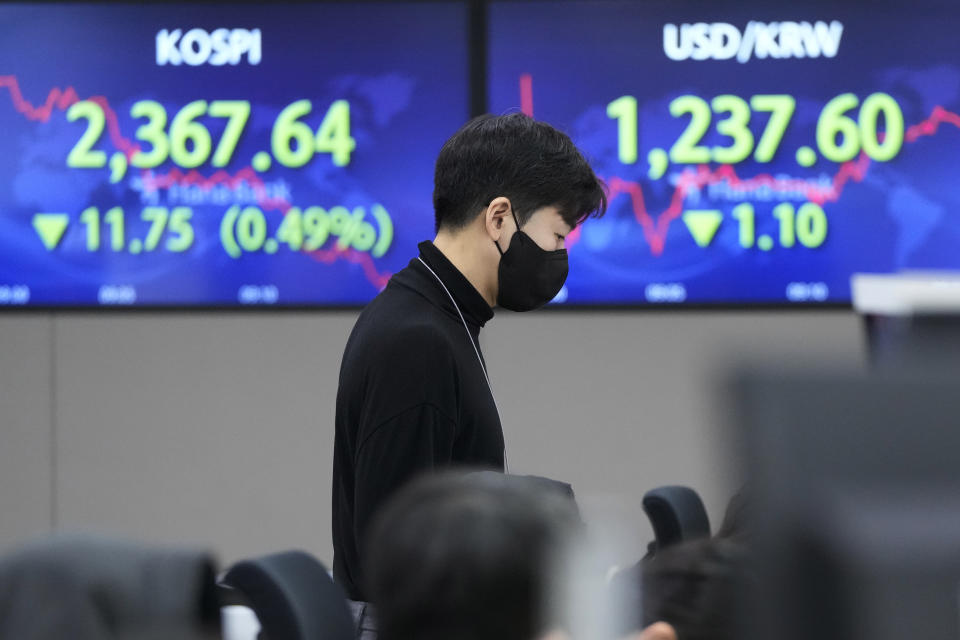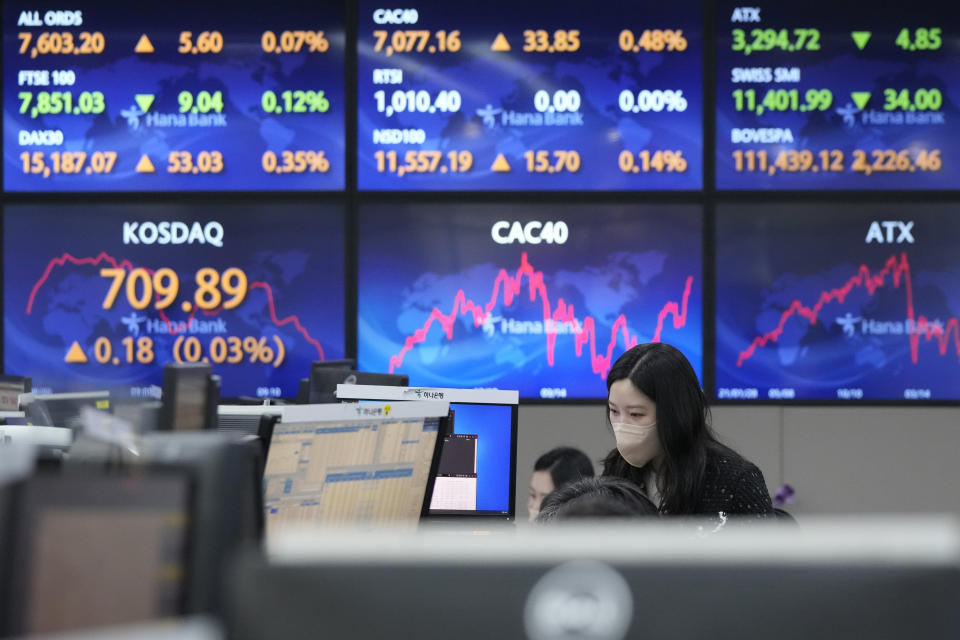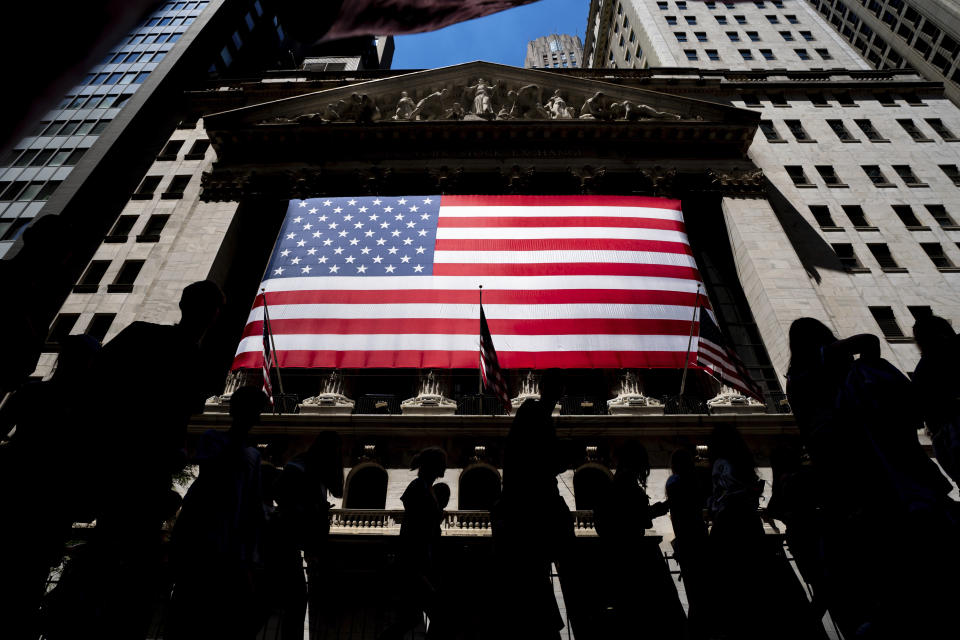In This Article:
BANGKOK (AP) — Asian shares advanced Wednesday, with Tokyo gaining more than 2% after Japan’s central bank kept its lax monetary policy unchanged, dispelling speculation it would yield to pressure to tighten credit to counter rising inflation.
Oil prices rose and U.S. futures edged higher.
The Bank of Japan shook markets in December with a surprise widening of its target range for yields on long-term government bonds. It kept that range in its latest policy statement, despite recent cases when yields on 10-year government bonds exceeded the 0.5% upward limit.
Inflation has been more subdued in Japan than in the U.S. and many other countries, but prices have been creeping up as costs for oil and gas and other imports have risen as a global trend. Moves by other central banks to raise interest rates to snuff out decades-high inflation have pushed the value of the Japanese yen lower, another strain on Tokyo's monetary stance. With Wednesday's decision, the BOJ's key interest rate remains at minus 0.1%.
Core inflation in Japan, excluding volatile food and energy costs, is forecast to rise to 1.8% in the fiscal year ending in March, and wages have not risen much.
Expectations of a change in the longstanding policy, aimed at fending off deflation, have been building as market watchers await the departure of BOJ Gov. Haruhiko Kuroda, who is due to step down in April.
After the BOJ's announcement, the dollar gained sharply against the Japanese yen, rising to 130.82 yen from 128.17 yen.
The Nikkei 225 in Tokyo gained 2.5% to 26,801.88. Australia's S&P/ASX 200 edged 0.1% higher to 7,393.40 while the Hang Seng in Hong Kong gave up early gains to fall 0.2% to 21,609.59. The Shanghai Composite index edged 0.1% higher to 3,227.85.
Bangkok's SET gained 0.2% while the Sensex in Mumbai was up 0.6%.
On Wall Street, stock indexes closed mixed Tuesday as investors focused on a busy week of corporate earnings for insight into how much damage inflation is inflicting on the economy.
The S&P 500 slipped 0.2% to 3,990.97, ending a four-day winning streak. The Dow Jones Industrial Average fell 1.1% to 33,910.85, mostly because of a 6.4% drop in Goldman Sachs' shares after the investment bank’s results came in far below analysts’ estimates as dealmaking dried up.
Gains in technology stocks helped the Nasdaq composite eke out a 0.1% gain to 11,095.11, extending the tech-heavy index's winning streak to a seventh day.
Small company stocks gave back some of their recent gains. The Russell 2000 index fell 0.1%, to close at 1,884.29.

